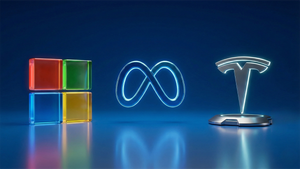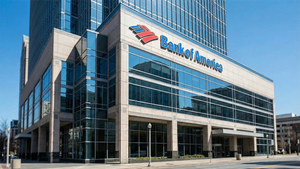Financial News
Mainz Biomed’s ColoAlert Potentially Puts It On A Similar Track As Big Name Cancer Screening Stocks
--News Direct--
By Meg Flippin, Benzinga

When it comes to screening for colorectal cancer, Mainz Biomed NV (NASDAQ: MYNZ) and Exact Sciences Corp. (NASDAQ: EXAS) have a lot in common. Both are overhauling the screening market for a cancer that kills 50,000 people each year. And both are doing it without an invasive test that requires hours of uncomfortable prep. Exact Sciences, which makes Cologuard and Mainz Biomed, which makes ColoAlert, are trailblazing with their at-home cancer screening tests. Cologuard in the U.S. and ColoAlert in Europe.
Take ColoAlert for starters. It spots bleeding and non-bleeding tumors through tumor DNA analysis, offering what the company says is a better early detection than fecal occult blood tests. That’s important since almost all colorectal cancers develop from polyps that grow over time. The longer the polyps are present, the higher the risk of them becoming cancerous, which is why early screening has the potential to dramatically impact treatment and prevention. Caught early, the survival rate after five years is 90% for colorectal cancer.
Exact Sciences’ Cologuard looks for colorectal neoplasia-associated DNA markers and for the presence of occult hemoglobin in human stool. It, too, says its screening technology is better at detecting colorectal cancer than blood tests.
Similar But Different
The companies both boast high accuracy rates and customer satisfaction. But that is where the similarities end. Exact Sciences dwarfs Mainz Biomed in size and sales, sporting a market cap of $7 billion to Mainz Biomed’s $12.6 million as of this writing. Exact Sciences stock, which trades at around $42 a share, has already had a runup, while Mainz Biomed, which is under $1.00 a share, is just starting out.
That might not be forever, which could position Mainz to follow a similar trajectory to Exact Sciences and other diagnostics companies specializing in the detection of early-stage cancers. Exact Sciences launched Cologuard in 2014, becoming the first DNA test for colorectal cancer in the U.S. Since then, it has expanded into other cancers and its stock and business have taken off. Mainz has been in the market since 2018 and sales have been growing at double digits since then. Revenue for ColoAlert increased 69% year-over-year in 2023 and more growth is expected this year and beyond.
ColoAlert Coming To The U.S.
Mainz Biomed has already made a name for itself in Europe and is gearing up to bring ColoAlert to the U.S. ColoAlert is currently under evaluation by the Food and Drug Administration for use in the U.S. as part of its ReconAAsense clinical study of about 15,000 subjects from 150 sites across the United States. The results of the study, which is pivotal for FDA approval, are expected next year. Once approved, MYNZ says it plans to establish scalable distribution through a collaborative partner program with regional and national laboratory service providers across the country. If it does get the nod from the FDA, it could prove to be a catalyst for the company’s growth.
It shouldn’t prove difficult given ColoAlert’s accuracy and ease of use. The company says ColoAlert detects 85% of colorectal cancer cases, often in the very early stages of the disease. A recent multicentric study of 566 patients simultaneously using the occult blood test, M2-PK test and ColoAlert, found ColoAlert, with a sensitivity of 85% and a specificity of 92%, was the most accurate test result among the non-invasive screening methods. The company plans to engage in further testing to validate the effectiveness of its screening over what’s already available in the market. “Combined DNA stool assay represents a reliable assay for detecting colorectal cancer, sufficient to be recommended as a supplement to colonoscopy screening,” the study researchers reported.
Big Opportunity On The Horizon
Then there is the market opportunity. As it stands, 37 million people in the U.S. get screened for rectal cancer each year. That could increase to 52 million per year within ten years as the population ages. In the United States there are 112 million people 50+, which is expected to increase to 157 million in the next decade. Of the U.S. population between 50 and 75, about 40% have never been screened. While the common practice is to start the screening at 50, the Food and Drug Administration says screening should start at age 45 and be conducted every three years. If that guidance is followed, it presents an even bigger opportunity for ColoAlert. All told, Mainz pegs the U.S. opportunity at $4 billion and the European market opportunity at $6 billion.
Colorectal cancer is deadly but it doesn’t have to be. Companies like Exact Sciences and Mainz Biomed are turning the market on its head with their at-home screening tests. While Exact Sciences dwarfs Mainz in size, Mainz has a lot of potential, especially if it gets approval to sell its test in the U.S. With that coming down the pike, Mainz is a story worth keeping an eye on.
Featured photo by National Cancer Institute on Unsplash.
Benzinga is a leading financial media and data provider, known for delivering accurate, timely, and actionable financial information to empower investors and traders.
This post contains sponsored content. This content is for informational purposes only and not intended to be investing advice.
Contact Details
Benzinga
+1 877-440-9464
Company Website
View source version on newsdirect.com: https://newsdirect.com/news/mainz-biomeds-coloalert-potentially-puts-it-on-a-similar-track-as-big-name-cancer-screening-stocks-913462543
More News
View More




Recent Quotes
View MoreQuotes delayed at least 20 minutes.
By accessing this page, you agree to the Privacy Policy and Terms Of Service.



